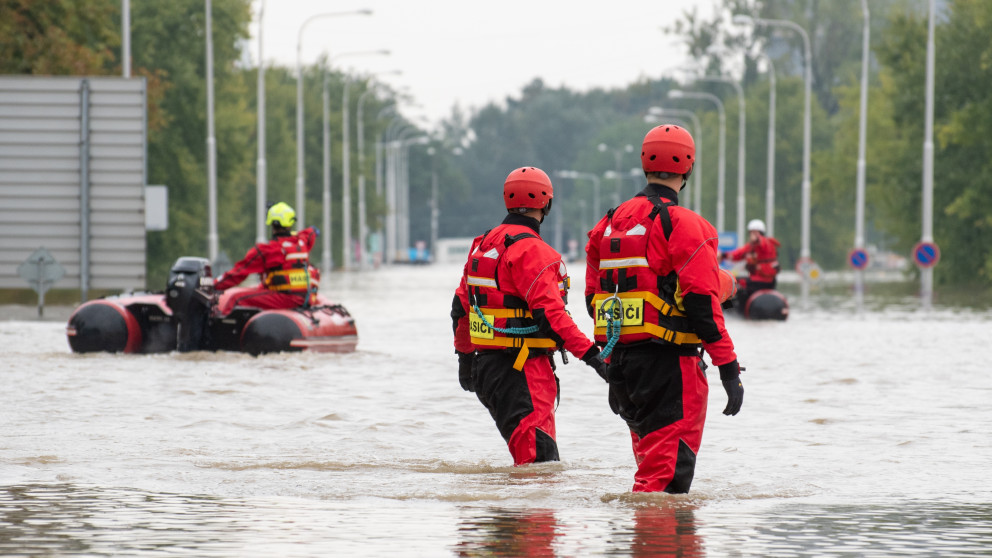Preparing for the Challenges Ahead – Flood Preparedness, Disaster Risk Management, and Climate Change Adaption in Europe
07.10.2024

The recent flooding across Central Europe highlights the relentless acceleration of climate change and the resulting hazards for society. Numerous countries were affected by this extreme weather event, which killed an estimated 23 people, displaced tens of thousands, and caused billions of euros in damage.
Shortly before the flooding, the research project DIRECTED (Disaster Resilience for Extreme Climate Events) hosted a workshop in Vienna on the assessment of disaster risk management and climate change adaptation strategies, together with local partner Genillard & Co. The event offered a unique opportunity to establish a network of experts for the Danube/Vienna region and brought together practitioners from the field of disaster management and affected actors, including public officials, insurance representatives, researchers and academics.
During the course of the workshop, participants recommended that the project partners develop and provide tools to increase data interoperability and data integration. While individual stakeholders often produce high quality data, the use of diverse formats and computational frameworks throughout Europe means that much of this data is not exchangeable. To address this, the DIRECTED project seeks to support the harmonization of data sets, which is critical for the successful sharing and use of data in weather and disaster modelling and risk prevention.

Participants also suggested that DIRECTED partners should assess existing governance mechanisms with regards to their capacity to prepare for and manage disasters. Of particular interest are the interactions between actors with different goals, such as the insurance and re-insurance industry, public officials, practitioners, and researchers. A key factor here is the streamlining of communication and planning strategies, exploring how differing goals and informal rules and regulations between the different actors might lead to friction in disaster risk management planning and decision-making processes. Additionally, whether and to what degree disaster risk management strategies are integrated into climate change adaptation processes was considered to be an important aspect by the participants for sustainable risk management in the long run. In short, while it is agreed upon that effective and sustainable disaster risk management requires the active integration of climate adaptation processes, such harmonization is often still lacking.
Given the challenges of establishing a basis for data interoperability and for cohesive governance and decision-procedures, the participants highlighted the need for an institutionalized communication platform. This would provide a streamlined process for inter- and intra-institutional knowledge and data sharing, granting actors a clearer understanding of decision-making mandates and processes and an overview of available data.
While governments and local authorities are still coming to terms with the full extent of the flooding and its impacts, we know that these events will occur more frequently and with growing intensity in a warming world. In the absence of an adequate policy response that promotes climate resilience in urban and rural areas, the impacts of such events will only become more severe. In view of this, DIRECTED aims to co-develop sustainable and resilient disaster risk and climate change adaption processes. We achieve this by overcoming silos between technical and political authorities, leveraging synergies between disaster risk management and climate change adaption policies, promoting the need for multi-risk thinking, and exploiting the power of open data and open science. Crucially, DIRECTED seeks to build lasting real-world partnerships that continue to flourish beyond the project’s duration.
The workshop held in Vienna was another step towards achieving this aim, and the numerous workshops and trainings organized by the DIRECTED research consortium and in its four Real World Labs will play an important role in further improving disaster risk strategies and climate adaptation policies.


